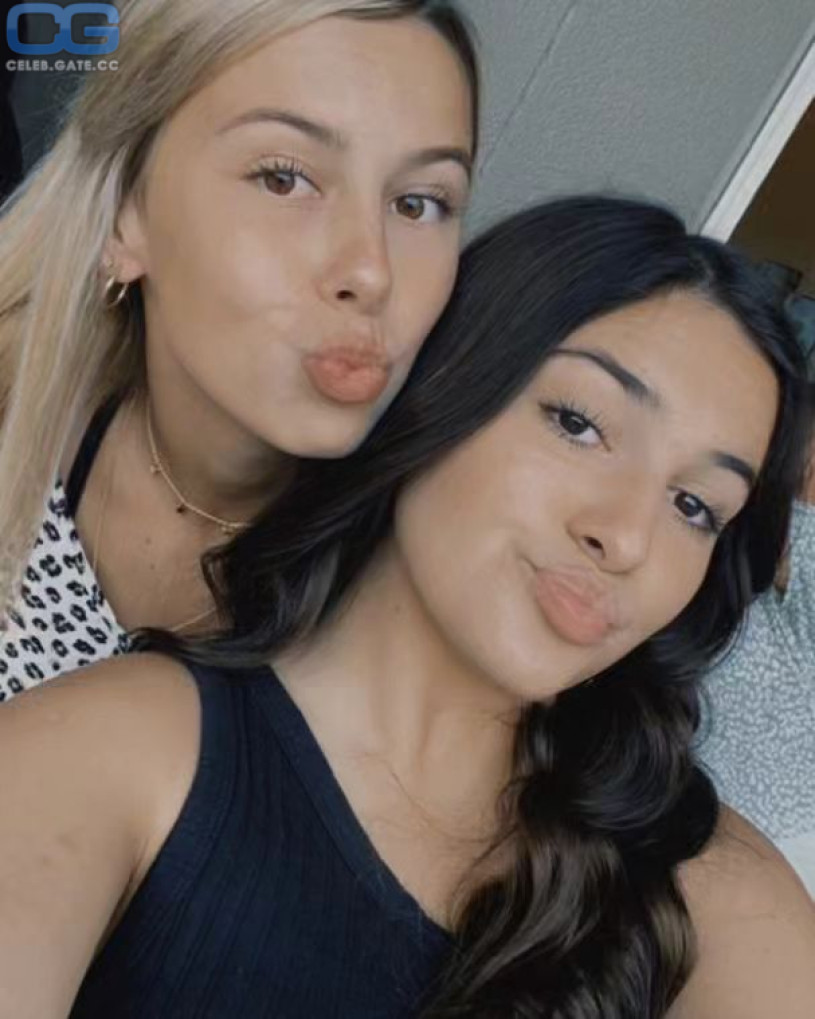Is internet fame fleeting, or can it be parlayed into something more enduring? In the case of Hailey Welch, the young woman known as the "Hawk Tuah Girl," the answer remains a complex, evolving narrative, heavily influenced by the unpredictable currents of social media and the ever-present specter of online exploitation.
The story of Hailey Welch, a name now synonymous with a viral moment, began in June 2024. It was then that a short clip of her, answering a street interview conducted by Tim & Dee TV, exploded across the internet. The clip, featuring her candid response to a question about her preferences in the bedroom, was shared across multiple platforms and quickly transformed Welch into an overnight sensation. Her spontaneous and unapologetic answer, delivered with a distinctive Southern charm, resonated with a vast audience, catapulting her into the digital spotlight. As of July 2024, the ripple effects of this viral moment continue to be felt.
This sudden surge in attention, however, has brought with it a torrent of unwanted scrutiny, and a complex landscape of ethical and personal considerations. The incident sparked a wave of speculation, particularly regarding the potential monetization of her newfound fame. Websites like OnlyFans, a platform known for its creator-centric approach to content monetization, became a subject of intense discussion, and even persistent fan requests. As the internet buzz intensified, Welch, at 22 years old, had to make crucial decisions about navigating her newfound celebrity status. It was on Wednesday that she addressed the issue directly, firmly stating her position and requesting that fans cease their inquiries about potential account details.
The online world is, however, a relentless echo chamber, and the popularity of the "Hawk Tuah Girl" has led to unwanted attention. The attention of those who seek to exploit an individuals online, as well as those who want to gain access to intimate content without consent. Reports have emerged of leaked images, potential deepfakes, and relentless online discussions around compromising media. While many websites now host her images and videos, the true ethical challenges of a digitally connected society are on display for all to see. It is vital to be aware of the risks involved.
| Category | Details |
|---|---|
| Full Name | Hailey Welch |
| Age | 22 (as of July 2024) |
| Known For | Viral "Hawk Tuah" video, Internet personality |
| Profession | Preschool Teacher, Podcaster, Internet Personality |
| Podcast | Talk Tuah with Hailey Welch |
| Social Media Presence | Instagram (over 2 million followers), TikTok |
| Viral Moment | June 2024 "Hawk Tuah" video |
| Date of Birth | Unknown |
| Place of Birth | USA |
| Link | Hailey Welch's Instagram |
The contrast between Welch's public persona and the private struggles of navigating this new landscape is a stark reminder of the duality of online fame. The accessibility of her image through social media, coupled with the ever-present potential for misuse and manipulation, creates a particularly challenging environment. The existence of websites dedicated to sharing erotic images and videos, often without the consent of the individuals depicted, and the prevalence of "deepfakes" further compound these issues.
Deepfakes, generated through artificial intelligence, have become a serious concern for public figures. They pose a significant threat to the reputation of individuals, and they blur the line between what is real and what is fabricated. In Welchs case, the potential for digitally altered images and videos could easily create a misleading portrayal of her persona. This underlines the importance of critical thinking and media literacy in the digital age.
Welch's response to the flood of attention reveals an interesting dynamic in the modern era. While the internet offers an unprecedented platform for connection and self-expression, it also presents significant risks. The swiftness with which a person's image can be disseminated, and the challenge of controlling its narrative, emphasizes the need for vigilance and clear boundaries. The discussion of OnlyFans, and the requests for her to join the platform, brought the issue of monetization into the foreground. Platforms like OnlyFans, designed to empower creators, also highlight the complex nature of consent and control.
The fact that Welch is also a preschool teacher and podcaster adds another layer to her story, highlighting the contrast between her professional and personal life. The viral clip, viewed millions of times across multiple platforms, also raised issues about the ethics and cultural impact of street interviews, and the responsibility of content creators in showcasing these kinds of moments.
The situation that Welch finds herself in is not unique. Many individuals who experience sudden fame find themselves navigating a complex terrain filled with opportunities and pitfalls. The presence of unauthorized content, coupled with the constant risk of identity theft and impersonation, further complicates the matter. This includes the widespread availability of her image on websites such as Erome, Xvideos and Pornhub, many of which are free and accessible to anyone. This can be both empowering and damaging.
Welch's story also highlights the role of various platforms in the creator economy. OnlyFans, for example, allows content creators to build direct relationships with their fans, while also controlling the distribution of their content. Other platforms, like Instagram and TikTok, are used for promotion and reaching a wider audience, while others specialize in providing content related to adult themes. While the platforms are different, the basic desire to create and interact with an audience remains the same.
The speed with which internet trends emerge and fade underscores the need for individuals to carefully manage their online presence and protect their personal information. As we watch Hailey Welch navigate her newfound fame, it is crucial to remember the human element that often gets lost in the digital shuffle. The "Hawk Tuah Girl" offers a valuable opportunity to analyze the multifaceted impact of online fame, and the ethical concerns that the internet brings.
The incident also highlights the ongoing debate surrounding the portrayal of women in media. The "Hawk Tuah" clip, by virtue of its candidness, generated a discussion that could potentially be empowering for women. Welchs decision to speak her mind, and to take control of her public image, stands as a sign that social media offers opportunities for autonomy.
The discussion surrounding Welch also provides a lens through which to view the broader trends in contemporary media consumption. The allure of the "real" and the authentic, especially in a curated online landscape, often leads to a public demand for unfiltered content. The interest in the "Hawk Tuah" clip, and the subsequent media coverage, may be a response to that trend. It emphasizes the role of the internet to create a dynamic, evolving cultural landscape.
However, the exploitation of her image is a stark reminder of the need for legal and ethical guidelines to keep up with technological advances. Protecting a public figure's rights, and regulating the distribution of potentially harmful media, is an ongoing challenge. The existence of websites that feature unauthorized content underscores the need for stronger protections.
The viral moment surrounding Hailey Welch serves as a complex case study, and her experience is a reflection of the wider challenges and opportunities in the digital age. The speed and breadth with which her image and video were distributed serve as a stark reminder of the power, and pitfalls, of modern communication.



Detail Author:
- Name : Lura Conroy
- Email : london12@hotmail.com
- Birthdate : 1994-11-30
- Address : 4690 Brown Bypass West River, VA 76921-1543
- Phone : 1-463-479-1194
- Company : Crona Inc
- Job : Automotive Specialty Technician
- Bio : Tempore id est distinctio qui. Quia fuga eveniet debitis officia eum doloremque expedita vel. Et odit sit vel accusamus. Iusto est consequatur ab adipisci cum quibusdam.